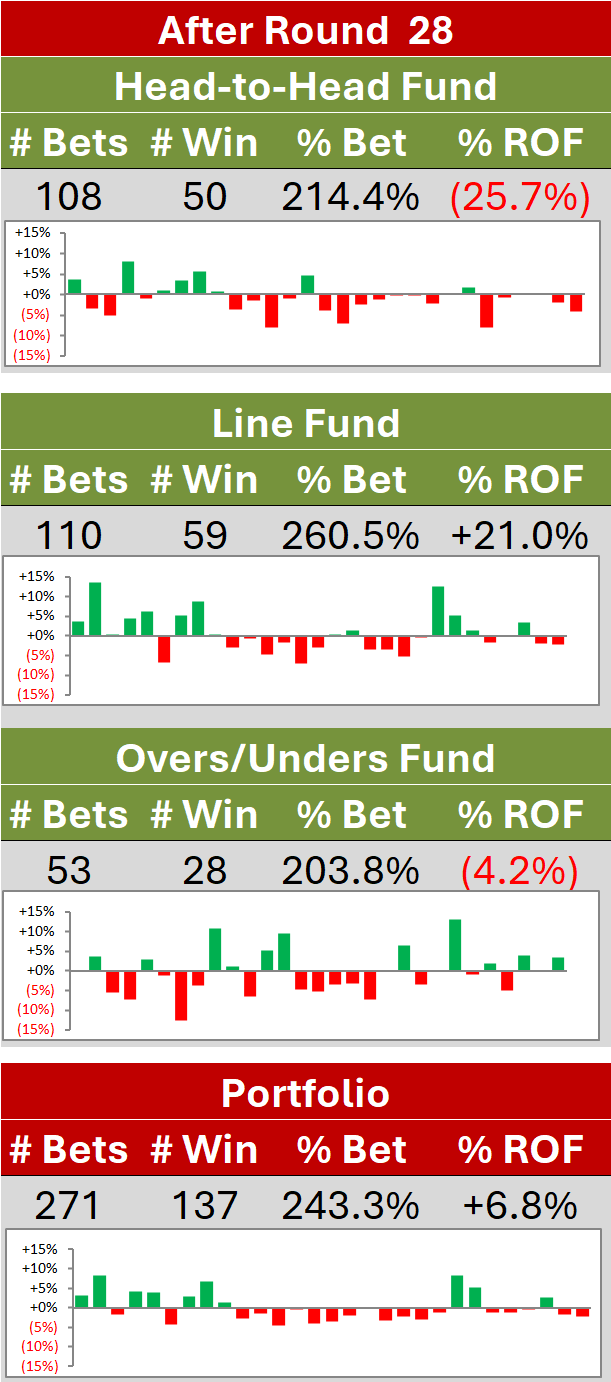Game Cadence
/If you were to consider each quarter of football as a separate contest, what pattern of wins and losses do you think has been most common? Would it be where one team wins all 4 quarters and the other therefore losses all 4? Instead, might it be where teams alternated, winning one and losing the next, or vice versa? Or would it be something else entirely?
The answer, it turns out, depends on the period of history over which you ask the question. Here's the data:
So, if you consider the entire expanse of VFL/AFL history, the egalitarian "WLWL / LWLW" cadence has been most common, occurring in over 18% of all games. The next most common cadence, coming in at just under 15% is "WWWW / LLLL" - the Clean Sweep, if you will. The next four most common cadences all have one team winning 3 quarters and the other winning the remaining quarter, each of which such cadences have occurred about 10-12% of the time. The other patterns have occurred with frequencies as shown under the 1897 to 2009 columns, and taper off to the rarest of all combinations in which 3 quarters were drawn and the other - the third quarter as it happens - was won by one team and so lost by the other. This game took place in Round 13 of 1901 and involved Fitzroy and Collingwood.
If, instead, you were only to consider more recent seasons excluding the current one, say from 1980 to 2008, you'd find that the most common cadence has been the Clean Sweep on about 18%, with the "WLLL / "LWWW" cadence in second on a little over 12%. Four other cadences then follow in the 10-11.5% range, three of them involving one team winning 3 of the 4 quarters and the other the "WLWL / LWLW" cadence.
In short it seems that teams have tended to dominate contests more in the 1980 to 2008 period than had been the case historically.
(It's interesting to note that, amongst those games where the quarters are split 2 each, "WLWL / LWLW" is more common than either of the two other possible cadences, especially across the entire history of footy.)
Turning next to the current season, we find that the Clean Sweep has been the most common cadence, but is only a little ahead of 5 other cadences, 3 of these involving a 3-1 split of quarters and 2 of them involving a 2-2 split.
So, 2009 looks more like the period 1980 to 2008 than it does the period 1897 to 2009.
What about the evidence for within-game momentum in the quarter-to-quarter cadence? In other words, are teams who've won the previous quarter more or less likely to win the next?
Once again, the answer depends on your timeframe.
Across the period 1897 to 2009 (and ignoring games where one of the two relevant quarters was drawn):
- teams that have won the 1st quarter have also won the 2nd quarter about 46% of the time
- teams that have won the 2nd quarter have also won the 3rd quarter about 48% of the time
- teams that have won the 3rd quarter have also won the 4th quarter just under 50% of the time.
So, across the entire history of football, there's been, if anything, an anti-momentum effect, since teams that win one quarter have been a little less likely to win the next.
Inspecting the record for more recent times, however, consistent with our earlier conclusion about the greater tendency for teams to dominate matches, we find that, for the periods 1980 to 2008 (and, in brackets, for 2009):
- teams that have won the 1st quarter have also won the 2nd quarter about 52% of the time a little less in 2009)
- teams that have won the 2nd quarter have also won the 3rd quarter about 55% of the time (a little more in 2009)
- teams that have won the 3rd quarter have also won the 4th quarter just under 55% of the time (but only 46% for 2009).
In more recent history then, there is evidence of within-game momentum.
All of which would lead you to believe that winning the 1st quarter should be particularly important, since it gets the momentum moving in the right direction right from the start. And, indeed, this season that has been the case, as teams that have won matches have also won the 1st quarter in 71% of those games, the greatest proportion of any quarter.


